![]()
Wed, Feb 02, 2011 | The Meir Amit Intelligence and Terrorism Information Center
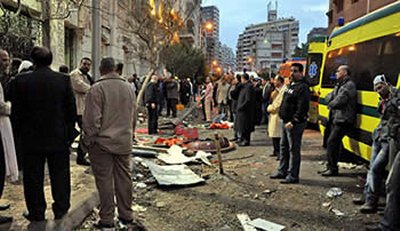
The site of the attack on the Coptic church in Alexandria, which killed 25 civilians and wounded at least 80 (Photo: www.esu.cc website, January 1, 2011).
Islamic Jihadi Groups May Try to Exploit Egypt’s Turmoil
Exporting terrorism and subversion from the Gaza Strip: in our assessment terrorist organizations in the Gaza Strip may exploit the recent events to increase arms smuggling and infiltrate operatives into Egypt. The Gaza-based jihadist Army of Islam has already been accused of the attack on the Coptic church in Alexandria.
Developments in the wake of recent events in Egypt
The Hamas leadership has been closely following recent events in Egypt but so far has not taken a definite public stance in favor of either side. Hamas is interested in seeing the Egyptian regime overthrown, but fears it may survive and later settle accounts.
In the meantime, Hamas is taking precautions to ensure the security of the Philadelphi route, the Egyptian-Gaza Strip border. The Hamas-affiliated media have also been monitoring violent events in the districts of Rafah and El Arish. Hamas has made it clear that there is no danger of shortages in the Gaza Strip, especially of fuel and food, and that smuggling will continue through the tunnels.
Hamas is also helping its operatives escape from Egyptian jails. So far, a number of prisoners have returned to the Gaza Strip, entering though the tunnels. In addition, in our assessment terrorist networks in the Gaza Strip may exploit the events to increase the smuggling of arms into the Sinai Peninsula and the infiltration of operatives into Egypt.

Hassan Washah and his family. Washah was captured by Egyptian authorities in Sinai in 2007 with explosives which were intended for use against the Israelis. Washah is a member of the Army of Islam. (Rami Almeghari)
So far the Hamas leadership in the Gaza Strip has been careful to show itself as not exploiting the situation to further terrorism. However, it has helped its operatives who escaped from the prison in Cairo and in our assessment is waiting for the right time to take a stance. The other terrorist operatives operating in the Gaza Strip, including the Palestinian Islamic Jihad and especially global jihad networks such as the Army of Islam, want to exploit the situation to further their own activities and strengthen the terrorist networks in the Sinai Peninsula.
The Gaza Strip was clearly an exporter of terrorism to Egypt before the current crisis began. Egypt’s outgoing interior minister, and after him the Egypt media, accused the Army of Islam operating in the Gaza Strip of involvement in the mass-casualty suicide bombing attack at a Coptic church in Alexandria (January 2011, 25 killed and at least 80 wounded). Army of Islam operatives in the Gaza Strip were accused of directing terrorist activities in Egypt for Al-Qaeda and of contacting terrorist operatives through the tunnels under the Egyptian-Gazan border (which, according to the outgoing interior minister, threaten Egypt’s national security). The Army of Islam was also accused of involvement in other terrorist attacks carried out in Egypt in recent years, including one in the El Khalili bazaar in Cairo which killed a woman tourist from France (February 22, 2009).
An Army of Islam spokesman denied that the organization was involved in the attack in Alexandria, but praised the attackers themselves. A senior Army of Islam figure claimed that the Egyptian accusations were an Israeli effort to prepare world public opinion for a new war against the Gaza Strip. Hamas was quick to denounce the attack in Alexandria and called on the Egyptian authorities to join it in examining the reliability of the Egyptian information, but took no steps against the Army of Islam, toward which it is tolerant.
The Army of Islam is a prominent Salafist jihadist network which has been active in the Gaza Strip since 2006, one of several networks affiliated with Al-Qaeda and the global jihad. Its leader is Mumtaz Dughmush, scion of a very powerful Gaza Strip clan. In recent years the Army of Islam, which participated in the abduction of Gilad Shalit in June 2006, has adopted global jihad methods, such as abducting Western correspondents, attacking places of entertainment in the Gaza Strip which are considered “Western” (including Internet cafés), and attacking Israelis and foreigners in the Sinai Peninsula.
In the past there was tension between the Army of Islam and Hamas and even violent confrontations, but they never degenerated into an open break. That is because Hamas has been lenient with the Army of Islam (because of their past operational collaboration, including the abduction of Gilad Shalit). Thus, hamas has not taken effective steps to restrain it as it did in the past against the Jund Ansar Allah in the 2009 affair of the Ibn Tamiyyah mosque in Rafah.
In our assessment, the Egyptian accusations against the Army of Islam reflect a genuine fear that the Gaza Strip will turn into a hotbed of subversive activities and export subversion and terrorism to Egypt. That fear, which in our assessment is liable to increase because of the Army of Islam’s involvement in terrorism in Egypt and in view of the recent dramatic events, is based on several factors: the geographical proximity between Egypt and the Gaza Strip, the existence of Al-Qaeda-affiliated Salafist networks and the close relations between Hamas and the radical oppositionist Muslim Brotherhood. In addition, Hamas and jihadist network have joined forces with the Bedouins and global jihad networks in the Sinai Peninsula, and with terrorist networks operating in Egypt. All of the above are happening at the end of the Mubarak era, with its internal tensions and extensive protests, inspired by Tunisia’s Jasmine Revolution.
Egyptian accusations against the Army of Islam
Habib El Adly, the outgoing Egyptian interior minister, gave a speech in honor of Police Day in which he accused the Palestinian Army of Islam[1] operating in the Gaza Strip of the attack on the Coptic church in Alexandria. The attack, carried out on New Year’s Eve by a suicide bomber, killed 25 civilians and wounded at least 80. El Adly added that Egypt had “unequivocal evidence” that this “despicable act of terrorism” had been carried out by the Army of Islam. He ended by saying that the terrorist attacks in Alexandria would not break the will of Egypt, “which for hundreds of years has been built on the souls of its people, principles of moderation and tolerance, acceptance of others and the forsaking of violence and terrorism” (Establishment Egyptian TV, January 23, 2011).
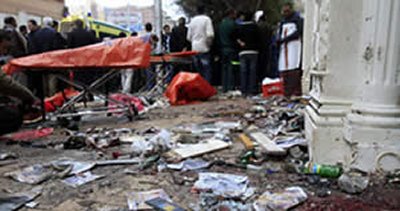
The site of the suicide bombing attack at the Coptic church in Alexandria (Al-Yawm Al-Saba’a website, January 3, 2011).
Two days later, on January 25, El Adly was interviewed by Al-Ahram and spoke at length about the Army of Islam’s involvement in the attack in Alexandria. His main points were the following (Al-Ahram, January 25, 2011):
1) Al-Qaeda has three main regional centers: Iraq, the countries of north Africa, and the Gaza Strip, where the Army of Islam operates. Al-Qaeda uses the Internet to recruit, train and prepare for terrorist attacks. It also uses the Internet to transmit instructions to its operatives about evading security forces and preparing IEDs from readily available materials. El Adly said that Egypt was convinced there were dozens of operatives loyal to Al-Qaeda in the Gaza Strip and that in the past some of them had attempted to carry out terrorist attacks in Egypt.
2) Al-Qaeda, one of whose objectives is to harm Christians and Jews, previously threatened to attack churches in Egypt. El Adly revealed that before the attack on the church in Alexandria the Egyptian security forces captured an Al-Qaeda squad which had weapons and sketches of Christian places of worship in Upper Egypt and Alexandria. The squad, composed of 19 suicide bombers and connected to a branch of Al-Qaeda in Iraq, was planning to attack the Christian sites.
3) An Egyptian Al-Qaeda operative named Ahmed Lutfi Ibrahim, who was involved in the attack on the church, was in contact with an Al-Qaeda squad which was exposed before it took place. The Egyptian security forces arrested him and searched his house. During interrogation he revealed his involvement in terrorist attacks in Egypt and his ties to the Army of Islam in the Gaza Strip.
4) Ahmed Lutfi Ibrahim stated that in 2008 he went to the Gaza Strip, returned to Egypt and used the Internet to stay in contact with Army of Islam operatives there. He said that the Palestinian Army of Islam told him to monitor [Christian] places of worship in several districts, including El Fayoum and Alexandria. He was also instructed to collect detailed information about the Church of the Two Saints [the Coptic church where the suicide bombing attack took place].
5) He collected intelligence about the church and emailed pictures of it to the Army of Islam in the Gaza Strip. In preparation for the attack, the Army of Islam also told him to acquire an apartment and a car. He suggested sending a suicide bomber [istishhadi] to attack the church. El Adly added that the Army of Islam had ruled that operatives who carried out attacks in Egypt should not be Egyptians or Palestinians, and therefore Ahmed Ibrahim did not participate in the attack.
6) El Adly accused the Army of Islam of involvement in the terrorist attack carried out in the Khan El Khalili bazaar in Cairo (February 2009), where a woman tourist from France was killed. He said that Army of Islam operatives had carried out the crimes and that “they had to be held accountable.”
7) Contact was maintained between terrorist operatives in Egypt and the Army of Islam in the Gaza Strip through the tunnels [under the Egypt-Gaza Strip border]. Egypt, said El Adly, blew up the tunnels daily and confiscated merchandise, fuel and disassembled cars, but “no country in the world can [completely] control its borders. He added, “We fight against the tunnels because they are very dangerous and are a threat to national security.” He said the Army of Islam used the tunnels to transmit instructions to terrorist operatives in Egypt who were neither Egyptian nor Palestinian.
8) However, El Adly was lenient when referring to Hamas. “It is no secret,” he said, “that Hamas takes steps against Palestinian Army of Islam operatives, who are affiliated with Al-Qaeda, because the Army of Islam’s attacks on Israel threaten the lull agreement.”
In addition, an Egyptian “security source” said that the information of the national security services indicated that the Army of Islam was responsible for the attack on the Church of the Two Saints in Alexandria. The Army of Islam was aided and abetted by an Egyptian operative named [Ahmed] Lutfi Ibrahim, who infiltrated into the Gaza Strip a number of times in 2008 after having been exposed to Al-Qaeda and jihadist ideology over the Internet. When in the Gaza Strip Army of Islam operatives he met convinced him that attacking Christian and Jewish places of worship was a precept of jihad.
The Egyptian operative admitted that after returning from the Gaza Strip to Egypt he used the Internet to maintain contact with Army of Islam operatives. During 2010 he was instructed to monitor Christian and Jewish places of worship in preparation for carrying out terrorist attacks against them. In October 2010 he updated them about the possibility of an attack on the Church of the Two Saints and other targets in Alexandria (the Maximus Church and a synagogue).
He stated that he was instructed to organize an apartment and car for the operatives who would carry out the attack. In December 2010 he was told that operatives had been dispatched to carry it out and he was congratulated by a senior Army of Islam operative on his part in preparing it (Website of the National Democratic Party, January 23, 2011; the independent Egyptian portal Masri reported the same information as an official interior ministry statement).
Army of Islam responses
An Army of Islam spokesman interviewed by Reuters in the Gaza Strip claimed that his organization had no connection with the attack on the church, although he congratulated those who had carried it out (Reuters, January 23, 2011).
A senior Army of Islam operative calling himself Abu Khattab claimed that the network did not operate on Egyptian soil. He said that if the Egyptian interior minister had proof he should release it to the media and “thus reveal the lies of his claims.” He added that “we are prepared to disprove his evidence, if he has any,” and that the Egyptian accusations were a manifestation of Israel’s efforts to enlist international public opinion against the Gaza Strip to wage a new war (Al-Resalah.net, Gaza Strip).
The Army of Islam and its terrorist activities
Various jihadist-Salafist[2] networks affiliated with Al-Qaeda thrive in the Hamas-controlled Gaza Strip. The Army of Islam (Jayish al-Islam), established in 2006, is one of the most prominent. It was founded by Mumtaz Dughmush, a scion of a powerful clan centered in the Sabra neighborhood in Gaza City. He and his followers left the Popular Resistance Committees and set up their own network, apparently later joined by operatives of the Izz al-Din al-Qassam Brigades, Hamas’ military wing. Initially the Army of Islam had close relations with Hamas; However, tensions developed and there were even violent confrontations between them although Hamas showed leniency toward them.

Mumtaz Dughmush, Army of Islam founder and head (right) with one of his operatives (Hamas forum website, January 24, 2007). According to the Egyptian daily Al-Ahram (January 24, 2011), the Egyptian attorney general demanded he and all those involved in the attack on the church in Alexandria be brought to trial.
The Army of Islam has strong military capabilities compared with other jihadist-Salafist networks in the Gaza Strip. In addition to ongoing attacks (attempts to fire rockets into Israeli territory), the network has adopted the modus operandi of the global jihad. That includes the abduction of foreign nationals and attacks on places of entertainment in the Gaza Strip, such as Internet cafés, which violate, it claims, Islamic morality. In June 2006 the Army of Islam collaborated with Hamas in abducting IDF soldier Gilad Shalit. In March 2007 it was behind the abduction of British journalist Alan Johnston, and in August 2007 it was behind the abduction of two Fox News correspondents, who were later ransomed.
Since Operation Cast Lead (December 2008-January 2009) the Army of Islam has tried to carry out a number of showcase attacks against Israel and foreign targets. According to media reports, in October 2010 it was planning to abduct Israelis or foreigners vacationing in the Sinai Peninsula, but was apparently foiled by the deaths of senior operatives: On November 3, 2010, the Israeli Air Force struck the car carrying Muhammad al-Nimnim, killing him. According to the (IDF Spokesman’s website, November 3, 2010), al-Nimnim, a resident of the Shati refugee camp, was involved in terrorist attacks carried out in the Gaza Strip and in planning terrorist attacks against Israelis and Americans in the Sinai Peninsula in collaboration with Hamas operatives in the Gaza Strip. On November 17 the Israeli Air Force struck and killed Islam Yassin and his brother.

Left: The Army of Islam video of BBC correspondent Alan Johnston, seen strapped into an explosive belt and reciting the Army of Islam's demands for his release (Al-Arabiya TV, June 25, 2007). Right: Islam Yassin's car after the strike (Website of aljazeeratalk.net, November 19, 2010).
Hamas response to accusations against the Army of Islam
Following the accusations leveled against the Army of Islam by the Egyptian interior minister, on January 23 Taher al-Nunu, spokesman for the de facto Hamas administration in the Gaza Strip, was quick to call a press conference. He denounced the “crime” in Alexandria (i.e., the attack on the Coptic church). However, he did not categorically deny the Egyptian accusations of Army of Islam involvement in the attack. He said that the Hamas administration’s relations with Egypt would continue to be firm and that Hamas asked Egypt to contact it immediately to examine the reliability of the information reported. He ended with the (baseless) claim that there were no Al-Qaeda networks in the Gaza Strip and that all the weapons of all the Palestinian organizations were turned exclusively on the “Zionist enemy” (Al-Aqsa TV, January 23, 2011).
Hamas’ response reflects the problems it faces in dealing with the jihadist-Salafist networks in the Gaza Strip in general and with the Army of Islam in particular:
1) On the one hand, Hamas and the jihadist networks share a common radical Islamic ideology, and dealing with them aggressively is liable to result in internal criticism from the radical Islamic followers, even those which support Hamas. In addition, of all the jihadist networks, the Army of Islam receives preferential treatment from Hamas, in our assessment, because of their past operational collaboration, such as the abduction of Gilad Shalit.
2) On the other hand, Hamas feels threatened by the increased activity and influence of the Al-Qaeda-affiliated networks, which challenge its control (even if they are not strong enough to challenge its complete domination of the Gaza Strip). In addition, it rejects their modus operandi because, motivated by pragmatic governmental concerns, it must maneuver between ideology and the exigencies of rule.
In response to that duality, so far Hamas has shown a great deal of tolerance for the jihadist-Salafist networks and usually does not take effective steps to suppress them. However, its security forces oversee their activities and try to enforce Hamas’ policy of restrained rocket fire, generally (but not always) with relative success. Hamas’ patience for the networks runs out only in extreme cases where they pose a genuine challenge to Hamas’ control of the Gaza Strip. Such a case was the suppression of the Jund Ansar Allah operatives at the Ibn Tamiyyah mosque in Rafah, after one of their leaders declared an Islamic emirate in Palestine and a condemned the de facto Hamas administration.[3]
The export of terrorism by networks in the Gaza Strip affiliated with Al-Qaeda has the potential to further complicate the already charged relations between Hamas and Egypt (which holds Hamas responsible for everything that happens in the Gaza Strip). Nevertheless, in our assessment, at this stage it is doubtful whether it will provide Hamas with an excuse to take effective steps against the Army of Islam, even after the exposure of its involvement in terrorism in Egypt.
Turning the Gaza Strip into a major exporter of terrorism and subversion
The control of the Gaza Strip by radical Islamic Hamas and the flourishing of Al-Qaeda-affiliated networks hostile to the pragmatic pro-Western Arab regimes create the potential for exporting terrorism and subversion from the Gaza Strip to neighboring countries. Egypt is particularly worried about the danger to its national security posed by the Gaza Strip’s turning into a hothouse for terrorism for a variety of reasons: Egypt lies in close geographical proximity to the Gaza Strip; it has a radical Islamic opposition (the Muslim Brotherhood) which influences the regime; and Hamas (the Gazan offshoot of the Muslim Brotherhood) and the jihadist networks have joined forces with the Bedouin tribes in the Sinai Peninsula. All those factor working in conjunction with Egypt’s currently unstable political climate at the end of the Mubarak era and the massive protests following the Jasmine Revolution in Tunisia worry the Egyptian regime.
The Egyptian media have accused the Army of Islam of “specializing” in terrorist attacks in Egypt and of involvement not only in the attack in Alexandria but also of terrorist attacks in the Sinai Peninsula (Sharm El Sheikh and Dahab) and Cairo. However, most of the media reports focused on the Army of Islam’s involvement in the explosion in the Khan El Khalili bazaar in Cairo on February 22, 2009. The explosion killed a woman tourist from France and wounded 17 civilians (ten French, three German and four Egyptian). On January 24, 2011, the Egyptian daily Al-Ahram reported that Egyptian security forces had previously arrested seven Army of Islam operatives in connection with the Khan el Khalili attack. Two of them were Palestinian, two were Egyptian, one was British of Egyptian extraction, one Belgian of Tunisian extraction and one a Frenchwoman of Albanian extraction.[4] According to the newspaper, the arrests prevented terrorist attacks in France and other countries.
In relation to the attack in the bazaar, Al-Ahram added that Army of Islam operatives underwent intensive training in remote IED detonation, the use of explosives found in unexploded shells and ammunition found in the Sinai Peninsula. It added that the Egyptian interior ministry previously announced that two escaped Egyptian citizens, Ahmed Sadiq and Khaled Mahmoud Mustafa, dispatched a number of operatives to the Gaza Strip through the tunnels. They were trained by Army of Islam operatives in the use of explosives and electrical circuits. According to an Egyptian website, Khaled Mahmoud Mustafa, who planned the attack in the bazaar, is currently living in the Sabra neighborhood in Gaza City (the stronghold of the Dughmush clan and an Army of Islam power base) (Shabakat al-Rasd al-Akhbari website, January 23, 2011).
Exporting terrorism to Morocco
Another example of internal Arab terrorism with roots in the Gaza Strip was the exposure of a terrorist network in Morocco. In June 2010 an eleven-man cell of Moroccans from Casablanca, Azjlal (in the Atlas mountains) and Oujda (in eastern Morocco), as well of Palestinians, was exposed. The cell was headed by Yahya al-Hindi, aka Abu Qutada al-Shami, a Palestinian from the Gaza Strip. He had previously been a Palestinian Islamic Jihad operative and was influenced by Al-Qaeda’s ideology.
In 2006 al-Hindi set up a terrorist network in the Gaza Strip with ties to the global jihad which called itself the Uniqueness of Allah and Jihad in Ardh al-Ribat.[5] It planned attacks on Israel and a number of times claimed responsibility for rockets targeting Israeli towns and villages in the western Negev. According to media reports, al-Hindi spent time in Afghanistan where he underwent military training at a Taliban camps, including in making and using explosives (Agence France-Presse, June 22, 2010; Maghreb Arab News Agency, June 21, 2010; posterous.com website, July 2, 2010). While in Afghanistan al-Hindi became acquainted with Al-Qaeda operatives, including Moroccans. After his return to the Gaza Strip he used jihadist websites to contact them, maintaining contact for three years.[6]
Notes:
[1] The Arab media use the term Palestinian to distinguish between the Gazan Army of Islam and other networks with the same or a similar name around the globe.
[2] Salafism is an Islamic school which favors the tenets of Islam according to the first generations, which are considered role models. During the past few decades Salafism had turned from a fundamentalist Islamic idea to a radical political ideology held by extremist Muslims operating in the Middle East and around the world (including Al-Qaeda).
[3] For further information see the September 1, 2009 bulletin, “Hamas steps up its struggle against the global jihad-affiliated networks trying to challenge its control of the Gaza Strip”.
[4] In our assessment, a reference to arrests carried out in May 2009. At the time an Egyptian “security source” reported that the detainees had been found with IEDs and ammunition in their possession. It was reported that they were planning to carry out terrorist attacks in Egypt and abroad. The “security source” added that the terrorist cell was directed by two Egyptian civilians who sent operatives to the Gaza Strip through the tunnels to undergo explosives training (El Masri website, May 23, 2009).
[5] Ardh al-ribat (frontier in Arabic) is a Muslim name for an outlying region where battles are waged between Muslims and “infidels” in defense of Muslim land. It is used to refer to ‘Palestine,” which is considered “occupied Muslim land.” Thus the Palestinians are considered a kind of garrison whose duty is to participate in a future jihad for the “liberation” of Muslim holy places.
[6] For further information see the August 20, 2010 article, “The Gaza Strip as a Regional Exporter of Terrorism”.



 RSS
RSS

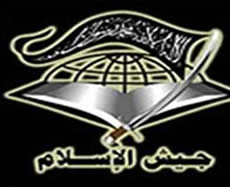


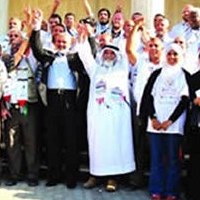
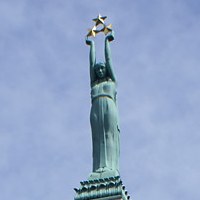






#Islamic #Jihadi Groups May Try to Exploit #Egypt's Turmoil | #Israel #terrorism http://j.mp/eseZIq
RT @CrethiPlethi: #Islamic #Jihadi Groups May Try to Exploit #Egypt's Turmoil | #Israel #terrorism http://j.mp/eseZIq
[…] [1] For further information about the involvement of the Army of Islam in terrorist attacks in Egypt, see the February 8, 2011 article, “Islamic Jihadi Groups May Try to Exploit Egypt’s Turmoil”. […]
[…] further information about the Army of Islam, see the February 8, 2011 article Islamic Jihadi Groups May Try to Exploit Egypt’s Turmoil. […]